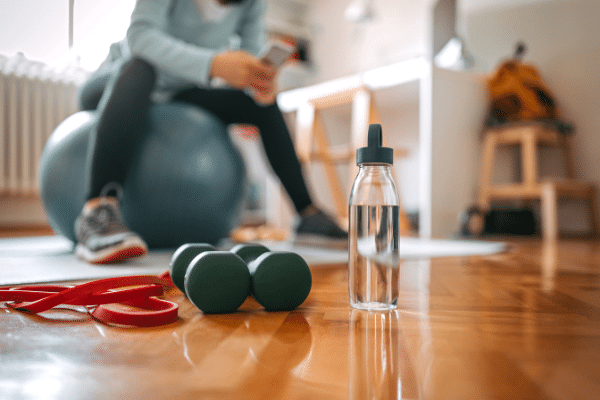Can we all agree that exercise plays a major role in sustaining a healthy, balanced life? From waking up early for a morning run to fitting in a midday pilates class, the after-effects of exercise have been proven to lift moods and shift negative energy, leaving you feeling happier and less stressed. While scientists and studies alike point us towards making healthier choices in our daily routines, humans tend to be stubborn and anything that shifts us out of our comfort zone can make us apprehensive and unwilling to change—until we know better.
With that, we’re highlighting the benefits of exercising before your next event.
Give your brain a boost
Exercise is just as good for your brain as it is for your body. A good workout can improve the way we think and feel across a number of different variables. One reason for this is the way exercise influences our brain’s neurochemical balance by altering the levels of naturally occurring chemicals. Scientific studies show that one single bout of exercise boosts the levels of three key brain chemicals: dopamine, serotonin, and noradrenaline. In short, serotonin gives us positive feelings of well-being, noradrenaline strongly influences our energy levels, and dopamine is a big part of our unique ability to think and plan. And having a strong ability to plan is something many people in our industry take pretty seriously.
Furthermore, working out mediates fatigue and subsequently increases positive changes in our mood. The infamous line in the movie Legally Blonde, “Exercise gives you endorphins. Endorphins make you happy” is true! Exercise has direct stress-busting benefits that pump up our endorphins. And those endorphins trigger a positive feeling in the body, which makes us feel happier, distracts us from worries, and improves our confidence. All of which meeting planners and professionals can benefit from before an event begins.
Rev up your workout routine
While any amount of exercise is good, regular exercise is best. In fact, some types of exercise may be more beneficial than others according to research. Aerobic workouts elevate our heart rate, which improves circulation in our brain. This helps promote healthy brain function and balanced brain chemistry, as we mentioned earlier. Additionally, aerobic exercise also provides many physical health benefits.
The Centers for Disease Control and Prevention encourage most adults to get at least 150 minutes of moderate-intensity aerobic activity per week. This may sound hard to manage if you frequently travel, but thanks to hotel gyms and outdoor spaces, exercise can easily become a part of your travel routine. You can reach this goal by taking a brisk 30-minute walk, five days a week. Other examples of aerobic activity include jogging, cycling, and even playing a game of hoops. You should also schedule at least two sessions of muscle-strengthening activities per week. Weightlifting, yoga, and pilates are examples of activities that strengthen your muscles.
If you’ve ever taken out a bad day on the nearest treadmill, you know that working up a good sweat can easily turn your day around. Regular exercise will bring remarkable changes to our body, metabolism, heart, and mood. It has a unique capacity to exhilarate and relax, to provide stimulation and calm, to counter brain fog, and dissipate stress. Helping people to focus on what’s happening around us, such as an event or meeting. Exercising before an event can do more than help us stay fit, it can help us stay cool, calm, and collected both physically and mentally—even when things don’t go to plan.





Leave a Comment